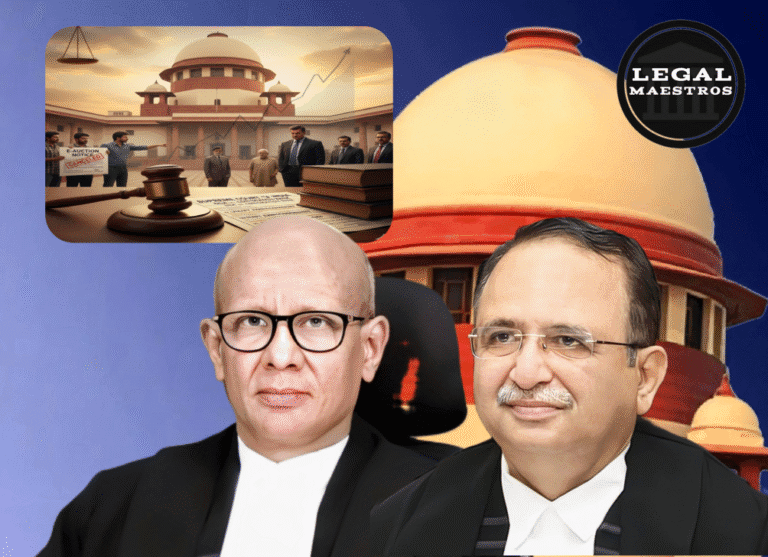
TCS Layoffs 2025: Navigating the Industrial Disputes Act, 1947 for Legal Compliance
Introduction
This is because, in 2025, Tata Consultancy Services (TCS) made an abrupt decision to fire a considerable number of workers. When a big employer like TCS decides to lay off its staff, this is no administrative business move by the company; this has far-reaching impacts as far as the livelihood of thousands of the affected employees is concerned.
To save such workers, India has formulated transparent provisions of the Indian Disputes Act, 1947 (the Act). This article explains the Act’s main points in simple terms so that everyone, including managers and those unfamiliar with the law, can understand what to do before, during, and after layoffs.
What Is the Industrial Disputes Act, 1947?
When it comes to the Industrial Disputes Act of 1947, it is an umbrella for the workers. It was drafted soon after India’s independence to balance workers’ rights to fair treatment with employers’ business rights.
In the same way that traffic regulations prevent cars from crashing, the Act sets out procedures to be followed by companies in order that layoffs would not occur abruptly or with discrimination.
Section 2(oo): Defining Layoff
The first thing that is explained under the Act is what layoff means in Section 2(oo). Simply speaking, a layoff is supposed to include the situation where an employer is unable to provide an employee with work due to factors outside of the employee’s control—just the way a shop can go out of business for a day associated with power failure.
By this category, if the employee is unable to be provided work during any period longer than 45 days in a year, then such a break is considered a layoff. In the case of TCS, it simply implies that anyone who is sent home with no stated reason or excessively long reemphasizes this definition.
Section 25F: Conditions Before Retrenchment
As TCS processes the permanent layoffs, known as retrenchment, it must abide by the rules outlined in Section 25F. This part is about a contract that has warning signs. The first requirement is that the company must provide an employee with either a notice period of at least one month or pay in lieu of that notice.
Second, TCS must compensate employees with wages equivalent to fifteen days for each year of their employment. Imagine you are renting a house: you would not only request a month to vacate the property before the landlord terminates your lease, but you would also expect to receive a refund of your security deposit. Section 25F functions similarly in protecting the jobs of workers.
Section 25C and Section 33C: When Government Approval Is Needed
When there is an intention of such a company to dismiss more than 100 employees in one factory or unit, then Section 25C and Section 33C come in. Section 25C states that complaints on layoffs should be brought before a labor court or tribunal so that a fair arbiter can look into the matter.
In the meantime, Section 33C states that the company has a duty to seek government approval before doing so. Consider Section 33C as a traffic light: the light does not turn green unless the government provides it a go. Therefore, instead of a rampage of mass dismissals and a devastating blow to local economies, it would go right in the other direction: prompt, yet carefully controlled development of the sector.
Section 17: Changes in Service Conditions
There are cases when the employers modify the conditions of employment (including the changes in working hours and the shift of departments) to prevent laying off. According to Section 17, a significant alteration has to be explained to workers verbally and to the labor department in written format. The situation is like a school schedule change: everyone must be told in advance so they can plan their day.
Why These Sections Matter for TCS Employees
Being conversant with these rules is, to an employee of TCS, the equivalent of having a map in the rough country. In case the company does not provide the notice or payments as required, then the employee has a chance to raise a dispute using the Act. In cases when disagreements are brought before a tribunal (Section 25C), the employee is able to seek justice, as is the case with a player seeking the referee when he/she feels a foul has not been awarded.
Everyday Illustration of the Process
Your family owns a restaurant, but they must cut staff because fewer customers are coming. It is impossible to simply show up one morning and tell your waiter that he must stop working today, as this would deprive him of his livelihood. Rather, it terminates him with a one-month notice, assists him in securing other employment, and provides him money in appreciation of his years of service. Such a commonsense form of justice is real-life Section 25F.
Moving Forward with Compliance
Just like any employer, TCS has to consider these rules not as a hindrance but as guidelines that help protect workers and the company. With reference to Sections 2(oo), 17, 25F, 25C and 33C of the Industrial Disputes Act, TCS can ascertain how the process of laying people off in the year 2025 can be executed with a sense of dignity, as well as within the scope of the law. Companies that honor these kinds of laws earn the trust of employees, as well as safeguard their reputation, just like the bridge constructed with strong pillars never shakes even when there is a storm.
Conclusion
Laying off, as useful as it may be in some cases, can be devastating to those who give their best at the workplace. India has its laws, that is, the Industrial Disputes Act, 1947 that lays down a systematic and reasonable course of action that can be taken by the employer, such as TCS.
The Act provides a systematic and reasonable course of action, ranging from what layoff entails in Section 2(oo) and what notice and compensation constitute in Section 25F to the requirement that it must be authorized by the government in Section 33C, making change both human and legal. Businesses and employees can go through rough patches and emerge stronger by applying the content of these sections and showing respect to the employee.






